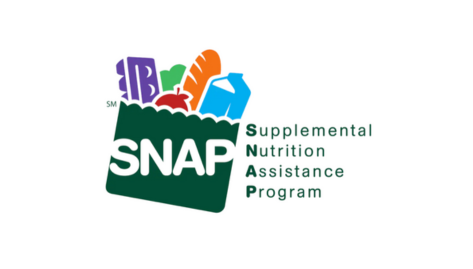Editor’s Note – November 4, 2025: Since this article was first published on October 27, new developments have emerged. The U.S. Department of Agriculture (USDA) has announced that SNAP will now receive partial funding, allowing benefits to continue for some recipients into November. However, funding remains limited and temporary, and officials have not confirmed how long the partial coverage will last. We will continue to monitor the situation and update this story as more information becomes available.
The government shutdown is entering another week, and now the Supplemental Nutrition Assistance Program (SNAP) is running out of money. The U.S. Department of Agriculture (USDA) says funds have run dry, and SNAP benefits will be disrupted starting November 1, 2025.
The Trump Administration declined to use contingency funds to keep benefits flowing. An internal USDA memo, obtained by the Associated Press, states:
“Contingency funds are not legally available to cover regular benefits.”
According to the USDA, those funds are reserved for disaster relief, not routine food aid.
A Historic Gap in Food Assistance

SNAP Benefits Will Be Disrupted across the country, leaving millions without help to buy groceries. SNAP, formerly known as the Food Stamp Program, supports families living near or below the poverty line. The federal government funds the program, while states handle operations.
Today, about 42 million Americans, roughly one in eight families, depend on SNAP to eat. Without November payments, food insecurity will rise sharply.
The Special Supplemental Nutrition Program for Women, Infants, and Children (WIC) is also running low on money. Nearly 7 million people will miss their November benefits as funding stalls. WIC survived October thanks to a short-term boost from tariff revenue, but that money is nearly gone.
“The National WIC Association is grateful for the emergency funds that kept WIC running this month. However, without additional support, State WIC Agencies face another looming crisis,” said Georgia McCall, the group’s president.”
She urged states to prepare contingency plans before funds run out on November 1.
In Alabama, nearly 110,000 residents rely on WIC. The State Health Department encourages families to keep using their benefits and for new applicants to continue applying.
“We don’t want people to stay out of the program when they need it,” said Dr. Karen Landers. “Alabama has a plan in place for how we would manage, but we can’t manage forever without funding from Congress.”
Food Insecurity Concerns Grow
Food banks across the country are already seeing more people. Many families turned to them when food prices soared earlier this year. Now, with SNAP benefits disrupted, those same programs are overwhelmed.
“You remove SNAP dollars, and people have no resources. We’re in real trouble,” said Cynthia Kirkhart, CEO of Facing Hunger Foodbank, which serves West Virginia, Kentucky, and Ohio.
Some states, including California and Louisiana, plan to use state funds to keep SNAP running. But the federal government has warned it won’t reimburse those costs once the shutdown ends.
If you or your residents rely on SNAP or WIC, experts urge you to:
- Stay enrolled and keep applying for benefits.
- Contact local food banks or community pantries for short-term help.
- Watch for updates from your state’s benefit office.
- Share information with neighbors who might not know their benefits are paused.






